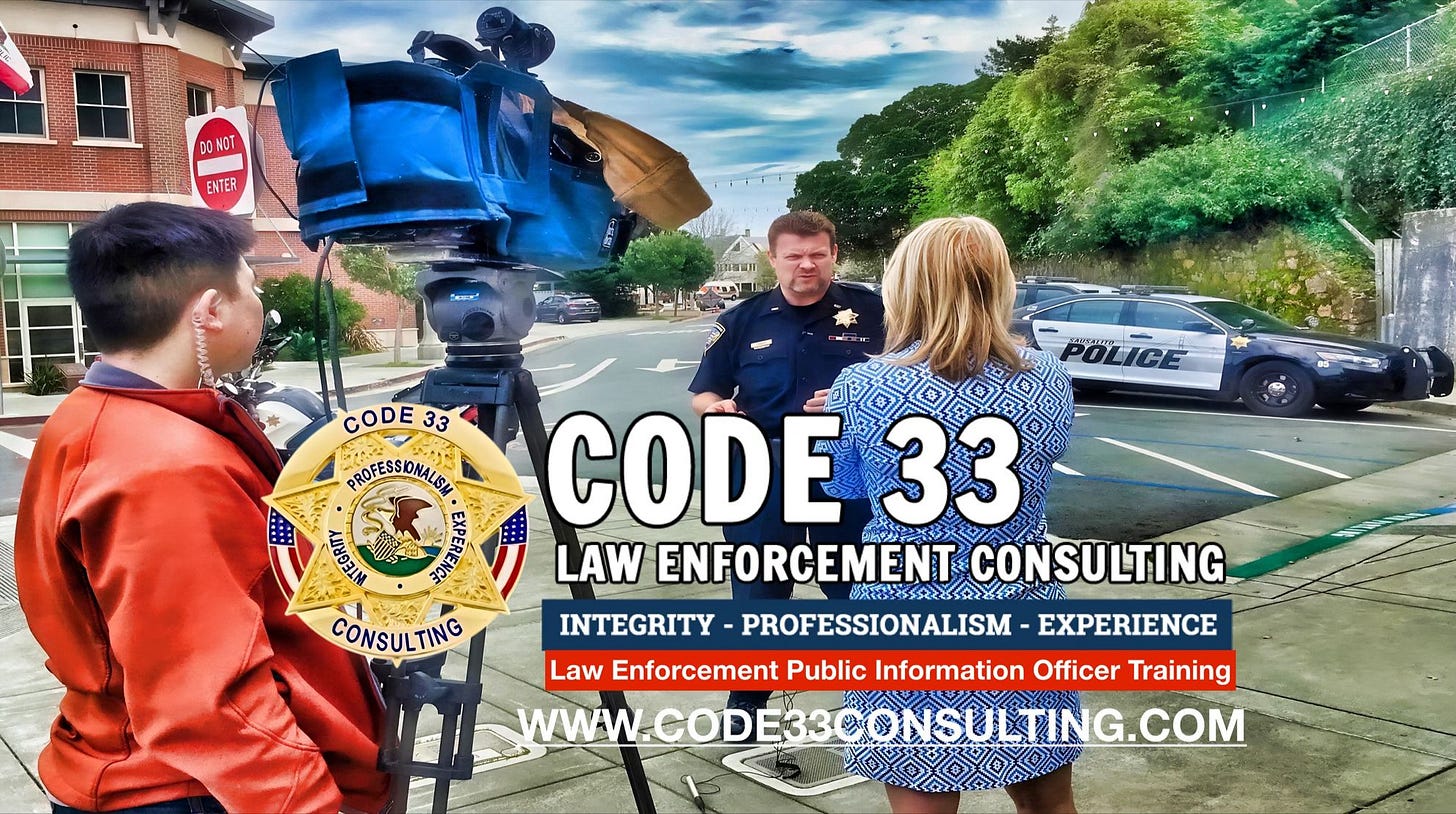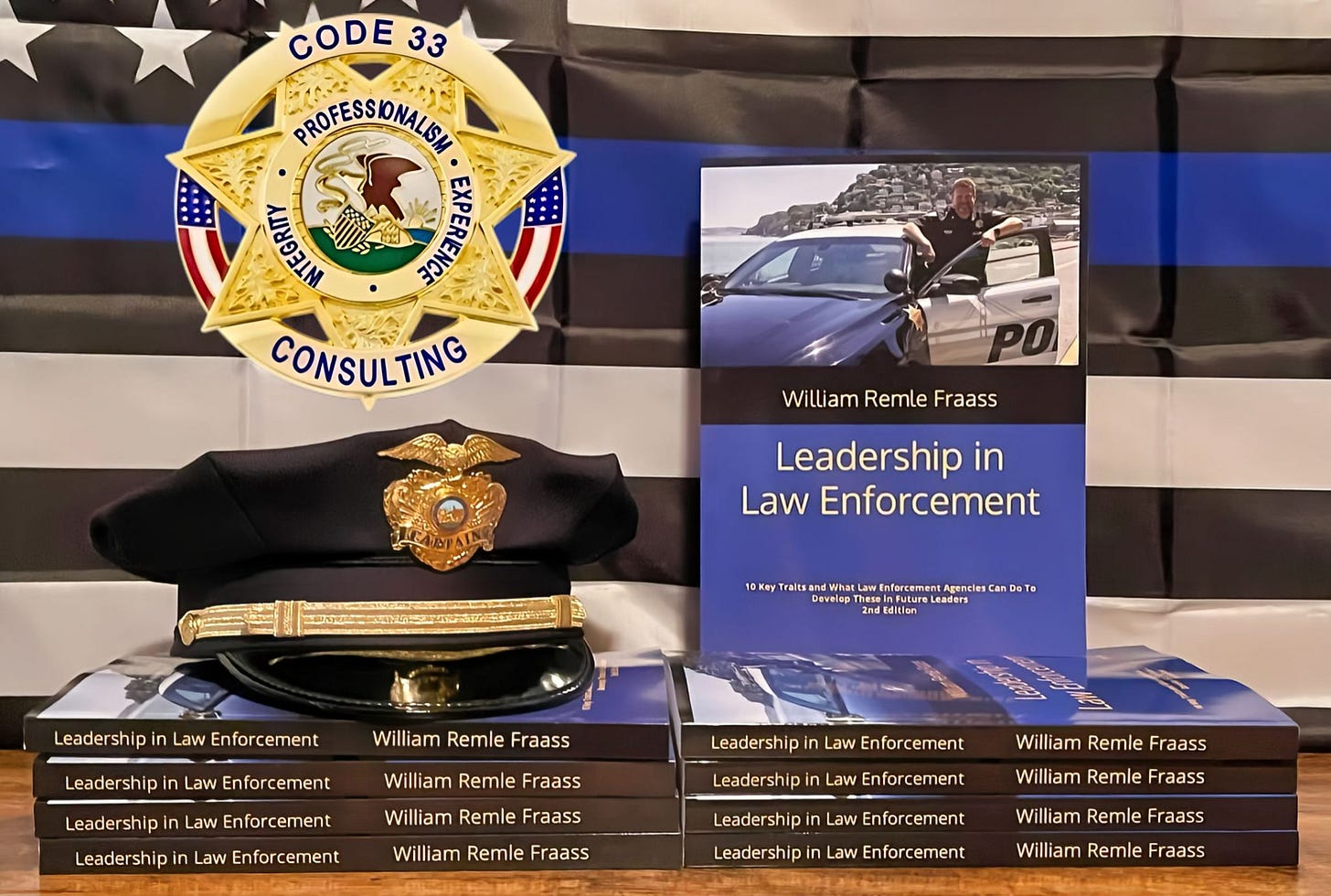The Vital Importance of Law Enforcement History
Neglecting the lessons of the past will inevitably lead to failure in the future.
I hope you enjoy this guest post by William R. Fraass. He often provides commentary on contemporary policing issues with incredible clarity. This article is no different. William retired as a captain after serving 27 years in a San Francisco Bay Area police department and is now an author, a law enforcement thought leader, and the Managing Consultant/Owner of Code 33 Consulting LLC. This article is an excerpt from his book: Law Enforcement Leadership: 10 Key Traits & What Law Enforcement Agencies Can Do To Develop These in Future Leaders. His detailed bio is at the end of this article.

As I approached retirement, I took the opportunity to take a long look back over my 27 year career. During this reflection, many wonderful, and a few sad, memories came back to me. Often memories of my graduation from the police academy, supervisory/ management schools, and the FBI National Academy came to mind. These ceremonies were filled with speeches about pride, professionalism, and the great responsibilities that we were about to assume, as well as a march across the stage to take a smiling photograph and accept a certificate or diploma.
In many ways, one could believe that these graduation ceremonies were similar to those of West Point, Annapolis, or the Air Force Academy. However, there was one major difference: the graduates from the United States’ military academies have a strong knowledge of the history of their profession and law enforcement officers at all ranks generally do not.
Why don’t we study our own history?
To face the present challenges as well as to prepare for the future, the United States’ military carefully studies its history to learn from their previous successes and failures. While not always perfect, it is better than what we do in law enforcement, concern ourselves with the crisis of the moment (a recent use of force, act of corruption, increase in crime rate, etc.) and treat what happened as recently as a year ago as ancient history. Due of this mentality, we are failing to learn from our own historical successes and failures.
Why are we not actively teaching the history of law enforcement at basic police academies, advanced officer schools, management schools, and the National Academy? Why are names such as Commissioner Lewis Valentine, Chief August Vollmer, Deputy U.S Marshal Bass Reeves, Deputy Chief Gertrude Schimmel, Chief Bill Parker, Chief Thomas Cahill, and Chief Penny Harrington not as familiar to law enforcement officers as General Douglas MacArthur, Admiral Chester Nimitz, General Chappie Jones, General Ulysses S. Grant, General Colin Powell, Lieutenant General Lewis “Chesty” Puller and Rear Admiral Grace Hopper are to members of the military? These law enforcement leaders had as much impact on their profession as those military leaders had on theirs. While not always perfect, these law enforcement leaders along with so many others’ careers, decisions, and legacies are worth studying so we can make ourselves better.
On the same hand, why aren’t our individual law enforcement agencies teaching our own history to our members? Often the agency’s attempt of acknowledging their history is to hang photographs of their long-forgotten chief’s or sheriff’s upon the wall without having any understanding of their tenure or legacy.
Agencies need to celebrate and learn from their past leaders, their heroes, and the agencies accomplishments, as well as acknowledge and learn from their mistakes.
Unfortunately, this historical perspective regarding agencies successes and failures, as well as their communities concerns and issues, are lost with each generation of officers that moves on. With this experience and knowledge not being passed on, the hard earned lessons learned are not just missed, but lost forever to history. This will send an agency back to the starting blocks on issues of safety within their community that might occur repetitively with minor changes over time.
Lessons should pass from generation to generation
Why must our profession constantly suffer from the lack of institutional knowledge that keeps us making the same mistakes (i.e. Buddy Boys and Rampart, acts that led to the Lexow Committee and Mollen Commission, Rodney King and Tyre Nichols beatings, inadequate response to the riots of 1965, 1992 and 2020, and the lowering of hiring standards that continuously lead to troubled officers on the streets, as well as scandals, etc.) again and again? Why can’t we learn from these mistakes and study all the good work we have done and the innovative practices we have implemented? We need to celebrate the proactive steps we have taken in our profession and put in place the necessary measures to keep these programs evolving, so that we don’t have to recreate them from scratch whenever there is a crisis is at hand!
Our profession is the greatest profession in the world and the history of law enforcement in the United States is one we can take great pride in.
We must learn from both our positive and negative experiences
There have been mistakes, errors, unlawful, and even evil actions taken under the guise of law enforcement, but these are minuscule in number when compared to the millions upon millions of professional, positive, and heroic actions that have occurred and continue to occur daily. To develop the best officers we can, to further the excellence of the policing profession, and to do our very best to not repeat our past errors, we need to find a way to incorporate the history of the policing profession into to the law enforcement educational system.
There are many outside influences (politicians, politics, lack of support, proper funding, changes in laws, etc.) that cause never ending challenges for law enforcement, by being proactive and incorporating the lessons of history into our educational system, we can take an assertive role in continuing to propel our profession into the future. There is no easy answer on how to solve this problem.
I’m not intelligent enough, eloquent enough, or experienced enough to determine how on my very own how to resolve every challenge that policing is facing. No one is. But as a profession in whole, law enforcement can successfully solve this with time and proper thought, dedication and study!
The United States’ military will not be forgetting their recent history makers such as General David Petraeus, Admiral William McCraven, General Stanley McChrystal, Admiral Michelle Howard, and General James Mattis. It would be a shame if the names of Commissioner Bill Bratton, Commissioner Charles Ramsey, Chief James Craig, Chief John Timoney, Deputy Commissioner Jack Maple, and Chief Kathleen M. O'Toole fade from law enforcement’s memory as the others did and we have to continue to relearn the same lessons over again every 20 years.
Author Bio:
Retired Captain William R. Fraass served 27 years with the Sausalito California Police Department rising from a 19 year old Reserve Officer to Captain. His final assignment was as the acting Chief of Police before experiencing an injury that led to his retirement.
He is a graduate of the 269th session of the FBI’s National Academy and earned a Masters in Criminal Justice with specializations in Law Enforcement Management and Homeland Security/Terrorism.
The author of Law Enforcement Leadership: 10 Key Traits & What Law Enforcement Agencies Can Do To Develop These in Future Leaders, he now is the Managing Consultant of Code 33 Consulting (www.code33consulting.com), a law enforcement/public safety consulting firm.
Please keep all of our law enforcement officers and their support personnel in your prayers.





I’d even add that if we fail to know our own history someone else will write it for us. It’s why we still battle the idea that American policing originated with slave catching, which is spectacularly inaccurate
Great article Roland, In order for us to learn from our past we must be able to to discuss and evaluate what didn't work in the past and own it. It's a fundamental character flaw in this thing of ours, an inability to take responsibility when we get it wrong.